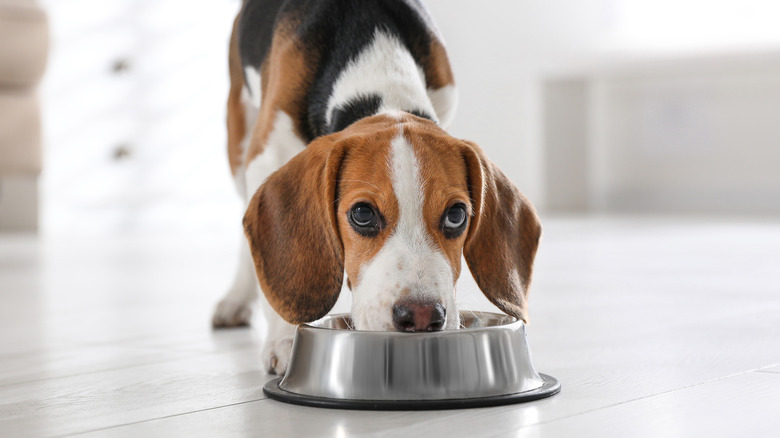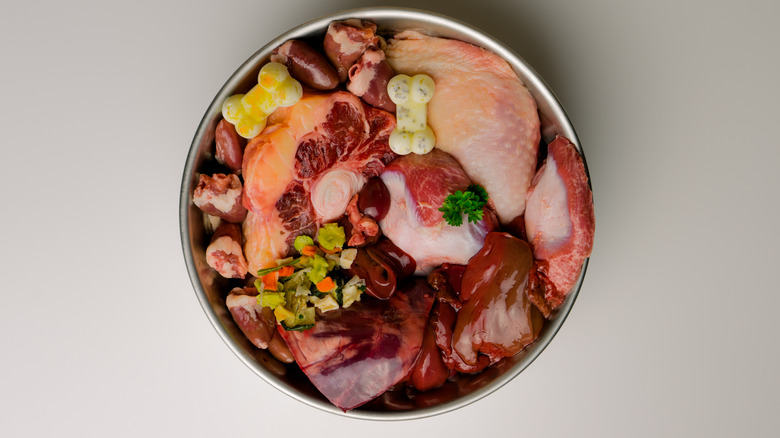Why Feeding Your Dog Raw Food Could Be Risky For Your Health
Devoted dog owners want the best for their fur babies: a safe home, plenty of love, lots of play time. Increasingly, owners are going beyond the bags and cans of the pet food aisle and opting to give their pups a raw-food diet. Some are mixing their own menus of uncooked meat, egg, and vegetables, while others are buying commercial brands of raw food that are now available at major pet stores. The thinking behind this is that dogs' bodies weren't meant to digest processed dry kibble, just as we humans weren't intended to live on fast food.
Raw-food fans claim that the all-natural diet improves their pets' overall health. The American Kennel Club adds that a raw diet is reportedly good for dogs' energy, digestion, coat, and skin. However, raw food isn't for every pup. Dogs with certain illnesses may not be able to tolerate uncooked food. And, ironically, the same food that's healthy for our fur babies could actually be dangerous for us. If you're thinking of switching your pet to a raw diet, you'll want to read this — particularly if you have young children or family members with compromised immune systems.
Raw dog food can carry an antibiotic-resistant bacteria
A recent study published in the International Journal of Food Microbiology (there's a title you don't see at the supermarket checkout rack) tested samples of a number of commercial wet, dry, and raw dog foods for enterococci, a form of bacteria that's typically resistant to antibiotics. More than half of the samples tested positive for the bacteria; what's more, all of the raw-food samples contained a type of enterococci that is multidrug-resistant (via Euronews).
In simpler terms, this means that people who become sick from handling raw dog food stand a greater risk of serious complications, because the antibiotics normally used to treat the infection may not be effective against the bacteria. People infected with antibiotic-resistant bacteria often require longer hospital stays and run a greater risk of dying. The World Health Organization asserts that antibiotic resistance is one of the most pressing global health concerns today.
The Centers for Disease Control recommends against feeding raw food to pets because of this risk of infection. People with lowered immune systems, such as babies, young children, the elderly, and immunocompromised, may be at special risk. If you do opt for a raw diet for your pet, it's important to practice good hygiene. Keep the food frozen until ready to use, then thaw it in the fridge (not on the counter), away from other food. Wash your hands thoroughly with soap and water after handling raw food, and disinfect any surfaces that the food touched. And avoid having your pooch lick your face or hands right after they've eaten.

